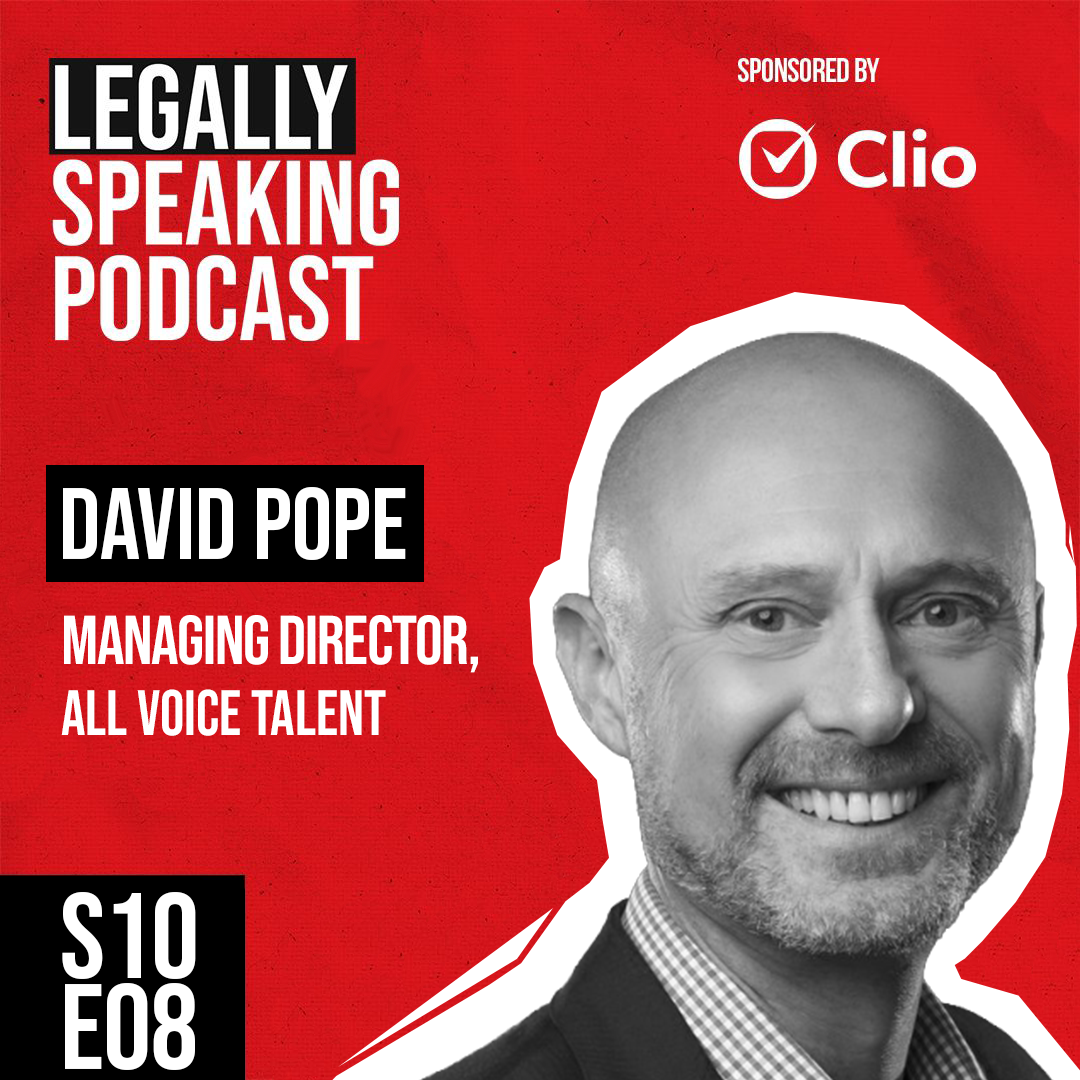
Is Your Voice Sabotaging Your Career? 3 Vocal Traits That Inspire Authenticity – David Pope – S10E08
On today’s Legally Speaking Podcast, I’m delighted to be joined by David Pope. David is an
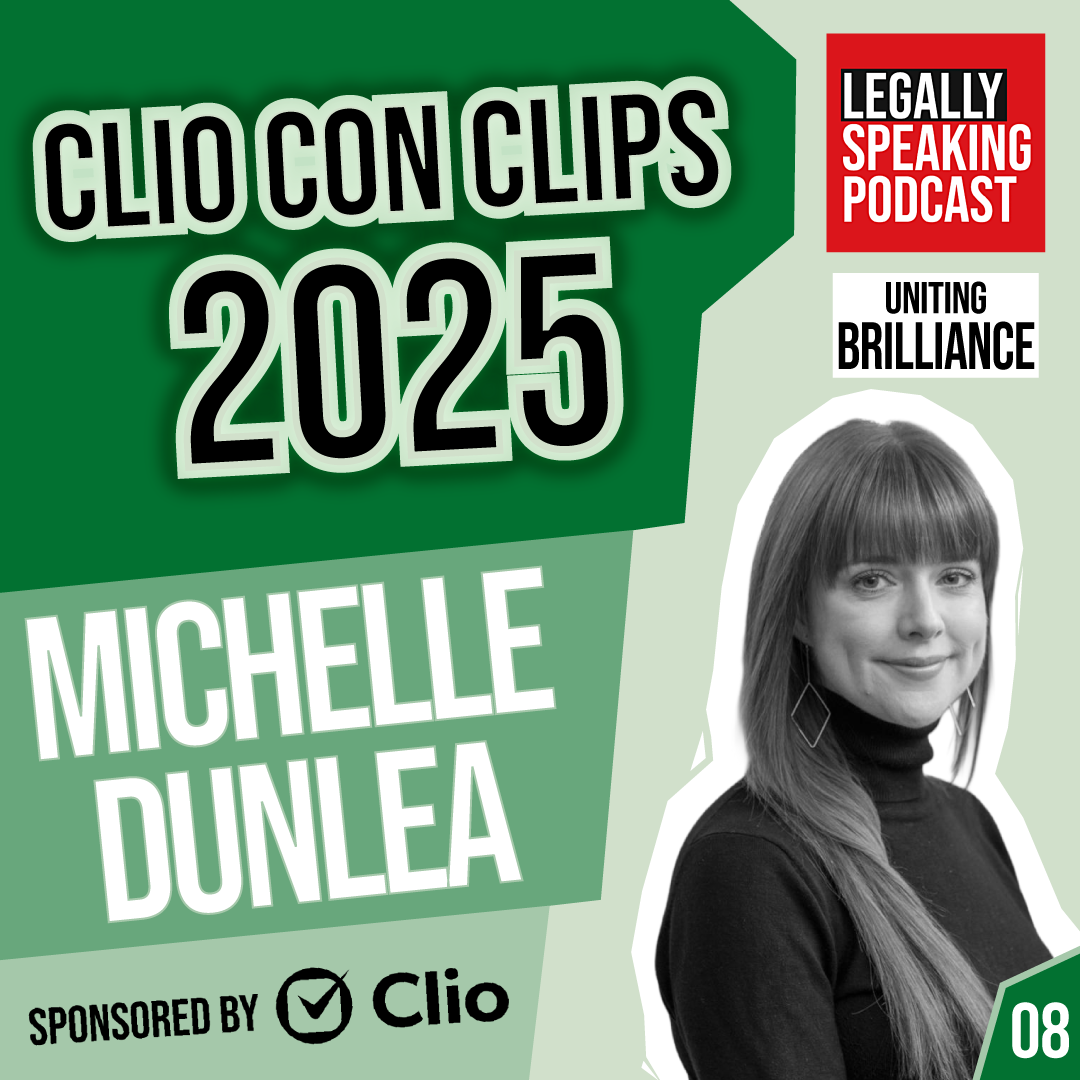
Welcome to Clio Con Clips 2025, recorded live from Boston and proudly sponsored by Clio, the world’s leading legal technology company transforming the legal experience for all.
On today’s minisode, Michelle Dunlea is our guest. She is the Vice President of Product Management at Clio. Known for her strong customer-centric mindset, Michelle leads Clio’s product strategy, focusing on unifying and innovating legal technology solutions. At Clio Con 2025, she shared insights on the company’s approach to AI integration, team collaboration, and building products that truly address lawyers’ real-world needs. Michelle’s leadership emphasises listening to customers, thoughtful design, and empowering teams to create lasting impact in legal tech.
So why should you be listening in?
You can hear Rob and Michelle discussing:
– One Platform Ruling Legal Work: Clio’s Vision in Action
– How to Design with Lawyers, for Lawyers
– AI That Works While You Work
– Triads of Innovation: Teams Uniting to Transform Legal Tech
– Invisible AI, Lasting Impact – The Future of Law Starts Now
Connect with Michelle Dunlea here –https://ca.linkedin.com/in/michelledunlea
Transcript
Robert Hanna 0:00
Welcome to Clio con clips 2025 recorded live from Boston and proudly sponsored by Clio, the world’s leading legal technology company, transforming the legal experience for all. I’m your host, Rob Hanna, and over this special legally speaking podcast series, we’ll be bringing you exclusive conversation with the brilliant minds behind Clio, the innovators, strategists, visionaries, driving one of the most transformative companies in legal tech. Across these interviews, we’ll explore how Clio is uniting brilliance across teams, technology and communities worldwide, from AI and data to leadership culture and the future of client experience, you’ll hear from people shaping what’s next for law and redefining what’s possible for legal professionals everywhere. So whether you’re a lawyer, technologist or leader passionate about innovation, you’re in the right place. This Clio conclips 2025 is where brilliance meets purpose and the future of law take shape. Let’s get into it. The you welcome to the legally speaking podcast recording live here from Boston for our Clio con clips series. 2025 sponsored by Clio. And I’m joined by
Michelle Dunlea 1:14
Michelle dunlea, Vice President of Product Management here
Robert Hanna 1:17
at Clio, you sure are, and I’m really looking forward to today’s chat. But before we get into that, give us a fun fact that people may not know about you here at Cleo com.
Michelle Dunlea 1:25
Oh, fun fact. Weird fact. Oh, I like weird fact. Really hates receiving gifts that I cannot consume. If I can consume them, that’s great. Otherwise, I don’t like gifts. Favourite gift to consume, wine,
Robert Hanna 1:38
okay, Red White Rose. It doesn’t matter anything. Okay, good, good, good. We can go down a rabbit hole with this one. So let’s, let’s talk about something super interesting, which is the intelligent legal work platform, which is one of cleo’s biggest launches ever, and really exciting following Jackson earlier today. So how would you take a vision that large and actually translate it into product strategy?
Michelle Dunlea 2:00
So you know what it feels like? This has been going on for about 10 years. In reality, it’s been about four months. So we’ve packed a lot into the last four months. So you know it’s but it genuinely is something that we’ve been thinking about for quite some time. So like, as you know, Cleo is really focused on the business of law up until this point, and what we started to see from our customers was this desire to bring their work closer together. Yeah, in every aspect, they want to bring their intake and their marketing closer to their practice management, closer to their billing, closer to their payments. And they really wanted that kind of single experience, yeah, and that extended into the practice of law as well. You know, we, we sometimes go to their offices to observe them working, because what’s really interesting about that is that you see things that they would never think to tell you about, yes, yes. And so we, we see them doing legal research. We see them doing all the practice of law stuff, and that happened outside of Clio, and it was a lot of work for them to to pull things together, to carry this cognitive load across systems and platforms. So it’s something that we talked about for a long time. In fact, we have a product strategy that has three pillars, three primary pillars to it. One of them is doing high quality legal work, and that was a one where we were very thin in terms of what we offered our customers. And so when this opportunity for the acquisition came up, we actually had a very clear vision of what we would do if it were to be successful, yeah. And so we reached the agreement to acquire and we got to work like straight away, I think the next week, V Lexus product people, couple of their engineers, flew to Toronto. We locked ourselves in a room with some of cleo’s people, and we just started to brainstorm. Yeah, what was very interesting is they have a perspective that’s gained primarily from enterprise, the enterprise space, like big law, although they have been serving like mid market and smaller customers more recently, and a lot of our reference points and stories and customer understanding came from the lower end of the market, yeah. And so the marriage of those two things was quite interesting, but we went through the creative process, and it’s like roller coaster cycles. We ended some days completely deflated, some days we were on a high, like it was. We were starting to figure it out, yeah, but what we started to realise was that the value started to come when we took all of the context from the matters that were already stored in Clio, and then started to marry that with the AI in Vincent, which has now become the Clio work product. And that’s where the magic started to happen, and so making very easy pathways between both products, so the transitions are seamless as people are doing their work, and that’s really when the magic started to happen.
Robert Hanna 4:47
Yeah, and I’ve spoken to a few Clio representatives around the more you can remove that friction and kind of free it up and make that process, the levels of adoption, the happier clients are. It all just works, and Clio really thoughts about that. And your apps. Delivered. And you touched on, obviously, going to offices and observing. So going a little bit deeper on that, how do you build for lawyers real world needs, while ensuring clio’s products stay simple enough and human centred?
Michelle Dunlea 5:12
Yes, there’s a lot of pot that goes into this. Yeah. I mean, I think the first part of that puzzle is understanding your customer like, that’s Product Management. 101, you have to understand them deeply. You have to understand the why behind their asks. So customers, like hundreds of customers, will come to us with very specific feature requests over the next couple of days, and the most annoying thing that we do, which is very important, just ask them, Why? Why to really get to, like, what is the thing that you’re trying to do? Because the thing you’re asking for is often like a band aid solution, or can be way more elegant ways of solving what they’re asking for. So that’s the very first part of it. Secondly, the design and the user experience. We have an incredible design team, and we obsess over, how can we make this easier? Do you really have to set this up? Or can we configure something out of the box that will work for 90% of people so they don’t have to do that setup themselves? How do we make sure, especially with the pace of innovation now, how are our customers being made aware of new capabilities without drowning them in pop ups? There’s so much thought that goes into this, and I think ultimately that’s, that’s what allows us to create these experiences that actually solve their needs, but hopefully do so in an elegant way that actually takes the cognitive load off them and just allows them to focus on their work.
Robert Hanna 6:34
Yeah, and I absolutely hear that, and I want to kind of go deeper on the information overload. And even Jack touched on that in his his keynote earlier.
Speaker 2 6:43
I get it. My brain is melting at this point. There’s so much, but you have
Robert Hanna 6:47
a track record, because you’ve led teams through major AI integration. So how do you make sure that innovation always serves and actually doesn’t overwhelm the end user?
Michelle Dunlea 6:57
I think it goes back to my earlier point about understanding them, understanding them, their workflows, the environment they operate in. What are the other things that they’re doing outside of the task that you’re helping them with? Yeah, and building those solutions that are thoughtful, and taking all of those aspects into consideration with AI, what I think is quite interesting is that compared to other products, like straight up automations, it can often be easier to use, especially because one of the principles that we’ve taken with our AI manage AI in particular, is that we wanted to take the onus off the customer for thinking about using it. One of the hard things about adopting any new technology is building a habit. Building a habit is extremely hard to do. Yeah, and so a good habit, building a good habit, building bad habits are really case in point. It is hard to build a good habit, and that’s why a lot of technology is not adopted. Like if you see, there’s some studies that actually show that while AI technology adoption is very high, the impact is low, and it’s not living up to the hype for some people, and I think that that’s because they’re not building habits around us. Yes. So we’ve taken a couple of principled approaches in developing our AI one is that it does whole tasks or whole jobs for customers, and the second thing is that it works autonomously beside them. So instead of popping up as a chat and saying, like, you know, what do you want me to do, we’re doing the thing and then surfacing it for their review. So all they need to do is say, is this right? Do I need to tweak anything? And off we go. They don’t have to have the cognitive load of figuring out what to ask it what for, for what they wanted to do next. And I think those two things are really important in adoption and making it simple. Yeah. And
Robert Hanna 8:47
what I love about everything I’m hearing from this clear car, everything is moving forwards, isn’t it? Everything you’re developing is helping move things forward to a system of action, which I absolutely love. Okay, let’s talk about Clio manage then and draft, because they use AI to automate routine work. So how do you decide what tasks to automate versus where the human input matters most?
Michelle Dunlea 9:08
Yeah, so there is a couple of inputs that go into figuring out what to automate. One is, what are the tasks that are not fun, like, what are the things they do not enjoy doing? What are stressful? What are time consuming? What are repetitive? Those are the ones, or even the ones that they’ve outsourced, or the ones that they have somebody where it’s a dedicated part of their job. Those are the first ones. So like you’ll see with manage AI, one of the things that we do is we parse scheduling orders, we calculate all of the deadlines, all of the milestones, and we surface that for review. That’s a process that our customers have told us for a dense scheduling order that can take hours and if they miscalculate a date because they’re calculated differently in all different states and different jurisdictions, that can be massively impactful. Bill in a negative way to the lawyer and the client. So this is taking the onus off of them, and they’re very grateful for that. Same with billing generation. One of the things that our pilot customers were so excited about was that we do the follow ups for approvals so the bill gets generated. You can take a quick look, tweak anything that you want to tweak. Mostly they’re not tweaked. I think it’s over 97% of those bills were approved, as is in our pilot programme. So Wow, super accurate. It’s attached to the matter, and then it’s auto sent to the person that’s to that’s supposed to approve it. And billing managers have told us that their least favourite part of that whole process is following up and following up and saying, Can you approve the bill? Can you approve the bill? Can you approve the bill? So Bill? We do that automatically at whatever cadence they specify, so they don’t have to do that anymore. Yeah, and that’s powerful. Like one of our pilot customers told us that it was Labour Day weekend this year fell on a Monday, and usually she would have to work because it was the first of the month, and that’s billing week. And she didn’t for the first time, because she was on our AI
Robert Hanna 11:02
pilot. And what, you know, and this is also important, I talk a lot about Tech for Good, and actually that improves overall well being family time, you know, the whole thing goes into actually improving the overall well being lifestyle of being a lawyer and tech being used for good. Love it okay, the whole year, the whole year, and whole theme of Clio come this year is obviously uniting brilliance. So what does uniting brilliance look like across your team’s day
Michelle Dunlea 11:25
to day? That’s a good question. So product kind of sits at the centre of a lot of functions at Cleo, yeah. But in particular, we work very closely with design and engineering, and so we work in what we call triads. So there’s a product manager, a designer, an engineering manager, and then a team of engineers, and they go tackle problems and build capabilities. I think for me, when I think about uniting brilliance in my world, it looks like those functions coming together and amplifying each other’s brilliance, talents, capabilities to create the kind of products that you see here today, yeah, which are
Robert Hanna 12:02
absolutely amazing. It has to be said, you can get the reaction from the crowd when Jack was reading them all, and it must give you a lot of intrinsic sort of happiness and value hearing that. You know, actually, it’s really affecting these people’s lives in a good way. And they’re just loving coming to work and Tech for Good, absolutely here for it. Okay, how are customer insights then influencing the next generation of product design at
Michelle Dunlea 12:23
Clio every day. Like it doesn’t stop, yeah. I mean, even last night, probably now, yeah, we had a mid market event last night, and a customer came up, and he had a list of 10 things that he would love to see the platform do. And we talked through all of them. I give my email. He sent them to me. They’re in my inbox. We’re going to start to look at those things, and when we get back to the office on Monday, it’s a continuous cycle. Okay,
Robert Hanna 12:45
let’s work through that example then, because you’re going to start with, why? Then why? Then why. So maybe helping lawyers who come with feet, what should what thinking could they do deeper before coming to you? That might be helpful. That’s a great question like so
Michelle Dunlea 12:59
there is one firm. They’re out of Saskatchewan in Canada, and they come to clearcon every year. Their whole team, I think there’s about 11 or 12 of them, yeah, and they have a binder, and they have individual product requests on each sheet. There might be 10 pages in this binder, and the way they have it structured is beautiful, because they have the problem that they’re facing. Like, what? What problem is this causing, like, why is this an issue? And what they’re actually trying to do, and then their suggested solution, and it is the perfect framing, because it allows us to see, well, what would be a reasonable solution for you, but it doesn’t. We don’t get lost in the solution, and we still have room to probe the problem and really understand what they’re trying to get at, because then, if we have a better way of doing it like we’ll we’ll talk to them, we’ll co create with them, and, and that would be my preferred method, yeah, we’ll take all feedback, listen. I’m not going to be fussy, yeah.
Robert Hanna 13:49
And that’s one thing Jack made very clear. You know, you’re listening all the time. You know, ears are on very much so, and that’s clear in the products you’re developing and the reactions you’ve been getting from the crowd and around the world, and the levels of adoption you’ve been seeing and the growth, okay, what excites you most about the next phase of Clio product evolution?
Michelle Dunlea 14:13
No, I think, I think with our AI products, we’re just scratching the surface. Yeah, like I said, work in particular came together very quickly. And I what I’m really excited about is getting it into the hands of customers and actually hearing how they’re using it, like, what are the use cases? Where is it falling down? Where is it really helpful? And we can amplify that same with manage. Ai draft. Ai grow. AI, I’m very curious to see what they come back with, because, like I said, we’re just scratching the surface, and I think that AI will ultimately become a basic part of the infrastructure in law firms. Right now, we talk about it a lot. It’s front and centre. It’s, I don’t want to say a novelty, but it requires talking about. I think over the next couple of years, we’re going to see it just become invisible a generally accepted way that law firms. Operate. And I think that will be the next phase of it,
Robert Hanna 15:03
yeah. And I think, you know, Clio is obviously going to be ahead. You know, they’re very much pioneering. Everything I heard from Jackson, and from what I’ve been speaking to, it sounds like a very exciting roadmap ahead. Okay, let’s zoom back out. Then we’re at Clio con. It’s my first time actually ever in Boston. So loving my, loving my time here. What’s been a highlight moment for you thus far of Clio con 2025
Michelle Dunlea 15:25
you know what we did, a partner summit yesterday, like a little warm up to Clio con for our Clio partners. And it’s a side of the business that I haven’t had a lot of exposure to before. Yeah, I just learned so much from these people. We have implementation specialists, we have developers, we have trainers. There’s all these people out there taking the products that we create and making them work, embedding them in processes, doing change management at large firms. And it was just really cool to get insight into that, and also to hear from them what they would like to see us to more or less of and it was a new angle that I’m going to lean into a bit more this year.
Robert Hanna 16:05
Yeah, and look, I love that you invest so much time and energy in all your partners, media partners included, and everything that you do. And it’s just been an absolute pleasure, Michelle, it’s been so good getting a chance to actually sit down and chat with you properly. And congratulations on an absolutely tremendous year with Clio. And I’m excited for what’s next, if people want to learn more about Clio, or indeed, get in touch with yourself, what’s the best place for them to go? Any websites, any social media handles, feel free to shout them out.
Michelle Dunlea 16:28
All right, so for Cleo, cleo.com everything you could possibly imagine is under there. And for me, LinkedIn is probably the best place. And I’m just at Michelle Don Lee, simple as that.
Robert Hanna 16:36
Well, Michelle, thanks so much. Once again, it’s been an absolute pleasure having you on the show, but from all of us here on the legally speaking podcast, sponsored by Cleo, over and out. Thank you for listening to this week’s episode. If you like the content here, why not check out our world leading content and Collaboration Hub, the legally speaking club, over on Discord. Go to our website, www dot legally speaking podcast.com there’s a link to join our community there, over and out.
You may also tune in on Goodpods, Apple Podcasts, Spotify, or wherever you get your podcasts!
Give us a follow on X, Instagram, LinkedIn, TikTok and Youtube.
Finally, support us with BuyMeACoffee.
🎙 Don’t forget to join our Legally Speaking Club Community where we connect with like-minded people, share resources, and continue the conversation from this episode.
Sponsored by Clio – the #1 legal software for clients, cases, billing and more!
💻 www.legallyspeakingpodcast.com
📧 info@legallyspeakingpodcast.com
Disclaimer: All episodes are recorded at certain moments in time and reflect those moments only.

On today’s Legally Speaking Podcast, I’m delighted to be joined by David Pope. David is an
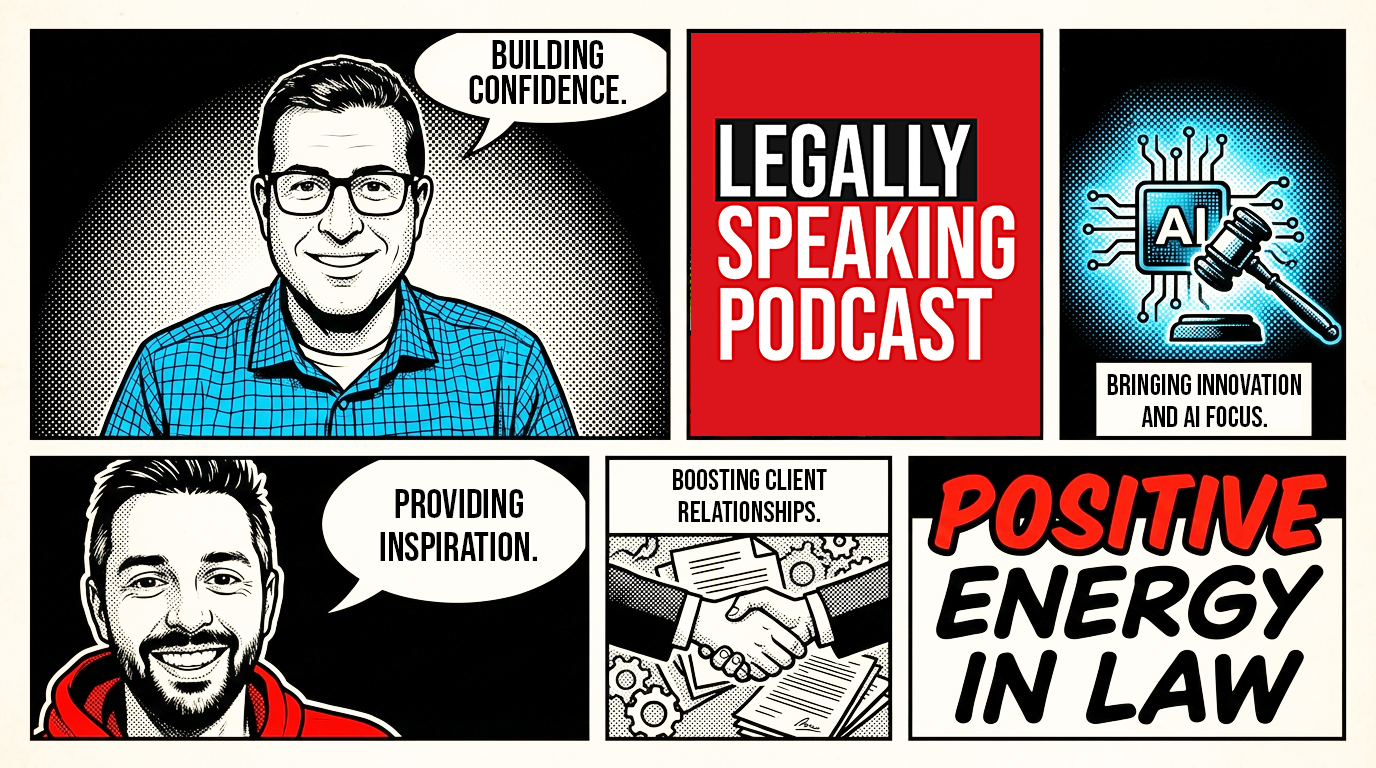
Are you seeking innovative ways to stand out in the legal landscape? Discover how the outside
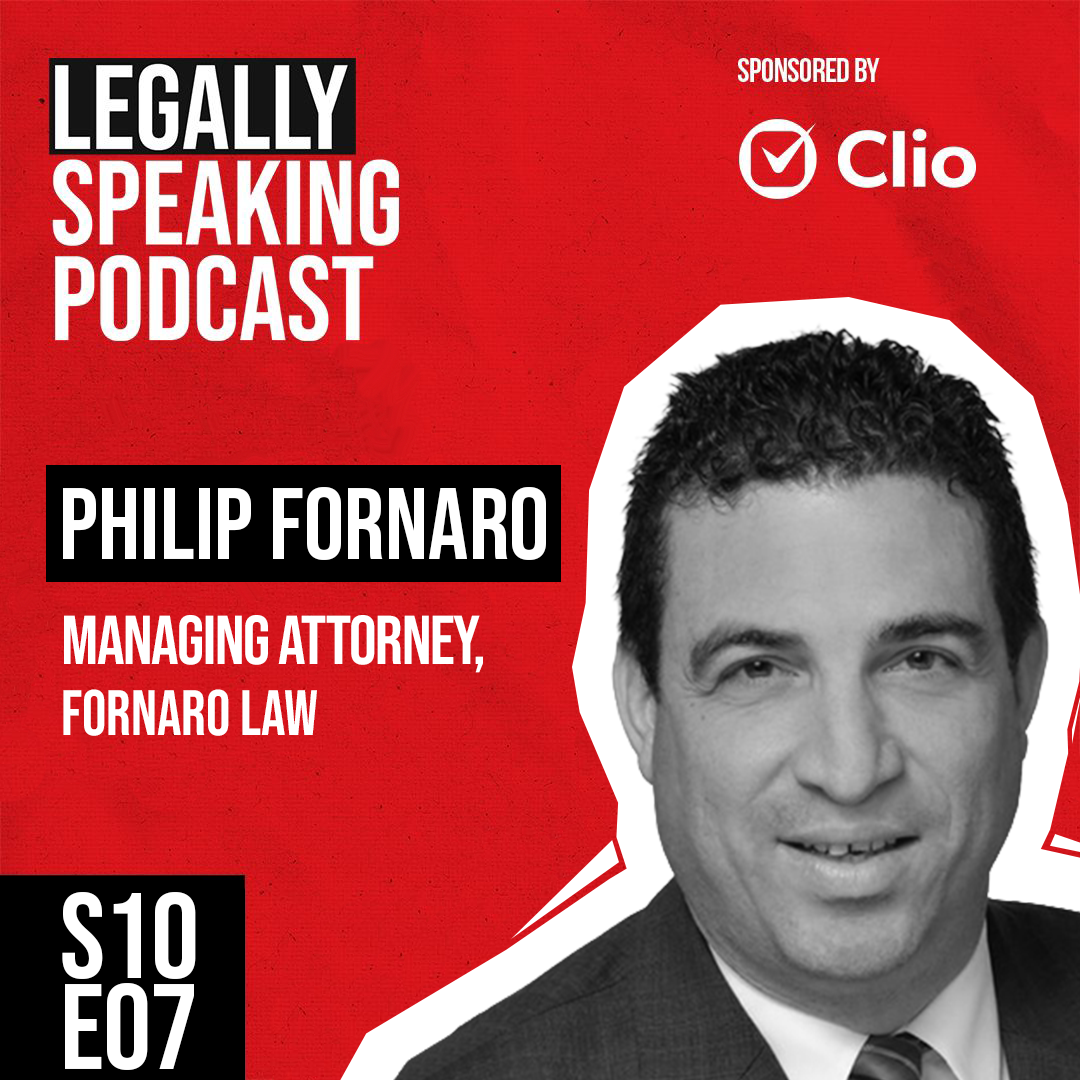
On today’s Legally Speaking Podcast, I’m delighted to be joined by Philip Fornaro. Phil is the
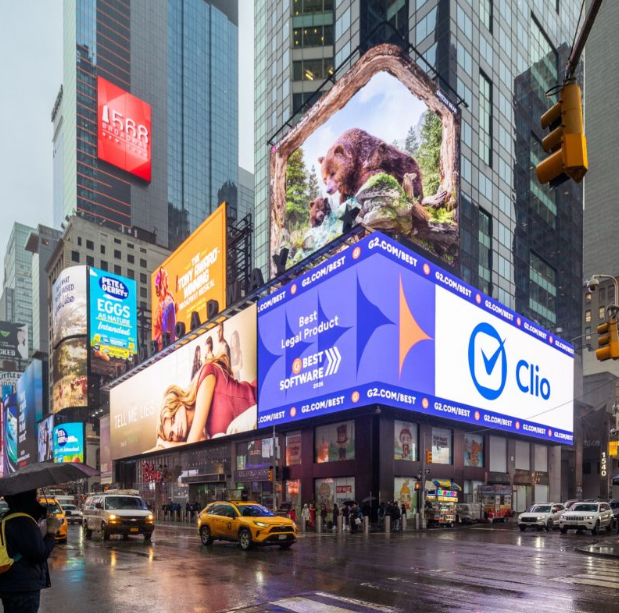
Clio lighting up Times Square feels like the perfect backdrop for what they’ve just accomplished 🤩💙

Are you considering starting your own law firm or looking to improve your existing practice? Do

On today’s Legally Speaking Podcast, I’m delighted to be joined by Björn Benckert. Bjorn is the

*DISCLAIMER* All episodes are recorded at certain moments in time and reflect those moments only. The podcast does not support or associate itself with any inappropriate behaviour or actions that may have occurred after recording.